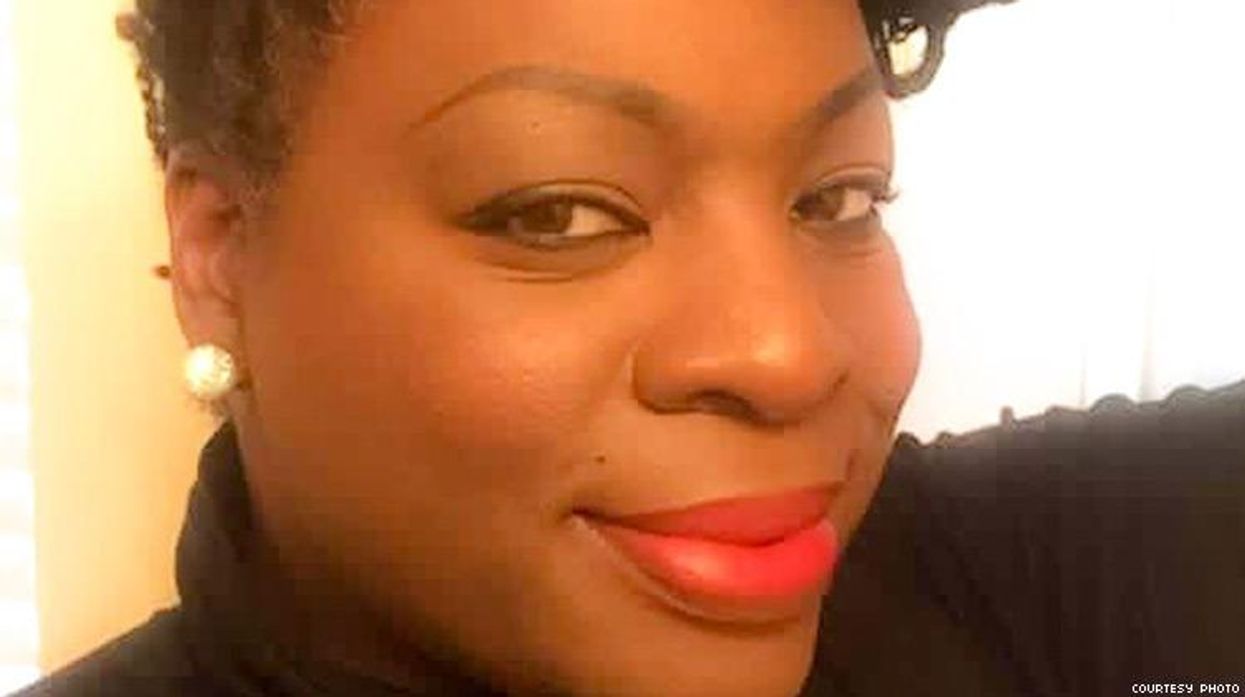Voices
A Southern Strategy to Combat HIV

The HIV epidemic in the Southern United States must no longer be ignored, writes Tori Cooper.
May 04 2018 5:14 AM EST
By continuing to use our site, you agree to our Privacy Policy and Terms of Use.

The HIV epidemic in the Southern United States must no longer be ignored, writes Tori Cooper.
This week I will share a stage with stars like Ava DuVernay, Samira Wiley, Laverne Cox, Melissa Etheridge, and more at the GLAAD Media Awards in New York City. Our shared mission is accelerating acceptance for all LGBTQ people, but I have an additional vital and lifesaving message to deliver as well. I will be onstage to raise awareness of the too often unseen and unspoken epidemic of HIV and AIDS in the U.S. South, particularly for my transgender sisters and brothers. We are the most marginalized and the most impacted by the HIV epidemic. Even in LGBTQ spaces, HIV and AIDS issues are too often afterthoughts or completely invisible. If we are to move forward, this needs to end.
As a proud Southerner, an accomplished HIV activist, and a community organizer, I know how important my voice is to breaking this silence. Less than one third of the U.S. population resides in the South -- and yet nearly 50 percent of Americans with HIV are living here. Furthermore, 50 percent of new HIV diagnoses occur in the South. These stark statistics raise the question as to why our region, our home, is most impacted.
There still exists an intense stigma in the South around HIV and AIDS and even just being LGBTQ. GLAAD's first annual Accelerating Acceptance study, conducted by the Harris Poll in 2014, revealed what GLAAD has termed "Southern Discomfort," the fact that many Southerners were still uncomfortable with having LGBTQ people in their families and the communities where they live. The results also showed that Southerners expressed significantly more discomfort about their LGBTQ family, friends, and neighbors than people in any other region of the country. GLAAD'S most recent Accelerating Acceptance study, released earlier this year, found an erosion of LGBTQ acceptance across the country. And of course the overall political climate in the nation is one that has been unfriendly and even hostile to LGBTQ people.
I know that storytelling and visibility can be front lines to ending stigma and advancing education about HIV prevention. But if you look at the nominees for the GLAAD Media Awards, which honor outstanding LGBTQ images in news and entertainment, only a handful discuss HIV epidemic. Films like BPM and When We Rise were historical looks at HIV. Nominated news articles from The Washington Post, The Atlanta Journal-Constitution, and The New York Times Magazine focus on communities impacted by HIV today, but could you imagine if these topics were included in some of the popular nominees consumed by youth and by people of color?
As a prevention specialist at Positive Impact Health Centers in Atlanta and a national trainer on TWIST, the Centers for Disease Control's first intervention for the transgender community, I work face to face each day with the people who are most impacted by HIV and AIDS, and who must be represented. Transgender women and people of color, who are disproportionately impacted by HIV in the South, must be central to the narratives that come out of journalism and media.
If the media won't shine the spotlight, then we will have to do so on our own. Now is not a time to be silent in the face of this silencing, erasure, and adversity. This a time to join together to amplify the voices and stories of LGBTQ people and people living with HIV and AIDS.
When I take the stage Saturday at the GLAAD Media Awards, it will be a call to our LGBTQ community nationally to acknowledge and commit to joining us in our efforts and awareness to end the HIV and AIDS epidemic in the South. We hope you will all answer that call.
TORI COOPER works with the recently launched Gilead COMPASS (COMmitment to Partnership in Addressing HIV and AIDS in Southern States) Initiative(tm), a 10-year, $100 million commitment to support organizations working to address the HIV and AIDS epidemic in the Southern United States.
Charlie Kirk DID say stoning gay people was the 'perfect law' — and these other heinous quotes